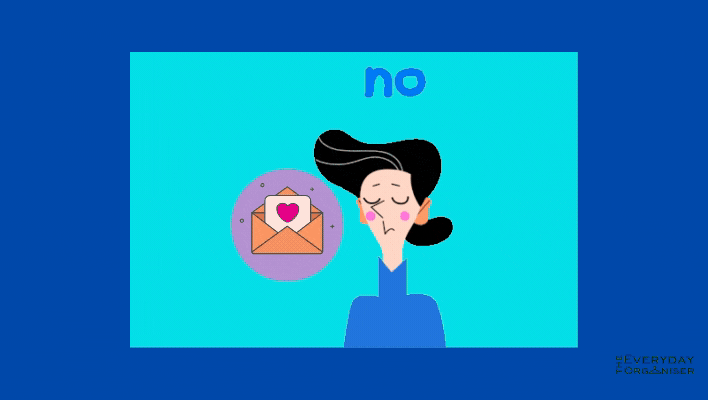February 14, 2022
Fear is an unpleasant emotion caused by the belief that someone or something is dangerous, likely to cause pain, or a threat. And we as a human and even animals has this feeling and it is the root of everything.
We live every day with fear, fear of losing jobs, fear of losing one of our loved ones, fear of losing self-control, fear of having no money, and fear of living in the society and committing mistakes that everyone can notice or see.
But how does fear manipulate you?
Fear can interrupt processes in our brains that allow us to regulate emotions. The emotional panic that accompanies fear shuts down the prefrontal cortex, or the rational thinking part, of our brains. In another word, this can affect our thinking and decision-making that leading us negatively and leaving us susceptible to intense emotions and impulsive reactions. Fear controls our emotions and everything is within us.
How is fear related to or connected to Social Anxiety?
According to a study that the root of all disorders is fear and one of those disorders is Society Anxiety Disorder. This is the fear feeling of hearing judgment for yourself, you feel like you don't fit into society, you avoid social situations, and become introverted. This is the fear of being judged and from embarrassment.
How to determine that you have Society Anxiety Disorder?
In determining if you have this Society Anxiety Disorder, get a checklist and start checking yourself with the help of these 8 signs you might have a Society Anxiety Disorder.
8 signs that you might have a Society Anxiety Disorder.
You're always self-conscious.

Being self-conscious and having self-awareness are sometimes healthy signs of emotional maturity but excessive self-conscious emotions are extremely unhealthy. They always overly check their appearance and always look good to avoid embarrassment and judgment from society.
Unhealthy self-consciousness is also triggered by pride and jealousy.
Your anxiety feels out of hand.

When you feel so nervous and shy in front of all people especially when you are in a new environment or place. You feel distressed about simple things such as making eye to eye contact with another person, taking public transportation, or eating in front of other people the fear is always there.
It interferes with your performance.

Social Anxiety Disorder can impact your performance in many ways because of the constant fear of judgment. It's affected you to do well, you don't even raise your hands in class, give ideas in a work meeting, join clubs and ask a question to someone because Of how much anxiety it creates.
It affects your relationship.

You feel awkward, tense, and uneasy towards the person, even you know each other and meet each other for a long time. Social Anxiety puts barriers in any relationship you have in your life.
It doesn't go away with familiarity.

You always feel fear and distress when you are in front of other people it may be your relatives or siblings. One of the reasons that trigger this is the fear of being embarrassed or committing mistakes around too many people.
You overanalyze everything.

You overanalyze your social interaction with the person. You missed a lot of time because you overanalyzed the person's voice tone, body language, and facial expression to see if they meant what are they saying or not. A simple not-to-greet good morning can trigger this feeling if you have a social anxiety disorder. The fear of being abandoned or unloved.
You avoid social situations.

If you have Social Anxiety Disorder you decline the invitation, refuse to speak or mingle with other people, and rather choose to stay in the corner to avoid being noticed by other people. This has no exemption even it is your birthday, wedding day, or special day.
You have physical symptoms.

Social Anxiety Disorder is often a company with physical symptoms some common ones are sweaty palms, shortness of breath, rapid heartbeat, shaky legs, and many more, in short, this is like a panic attack.
How to deal with Social Anxiety Disorder?
Various treatment options can help people manage their symptoms, gain confidence, and overcome their anxiety.
Without treatment, however, a social anxiety disorder may persist throughout life — though it may feel better or worse at certain times.
Healthcare professionals will usually recommend treatment with psychotherapy, medication, or both.
Psychotherapy
Psychotherapy, or talking therapy, helps people understand their experiences and develop effective coping methods.
There are many types of psychotherapy, including:
interpersonal therapy
psychodynamic therapy
family therapy
CBT is a common treatment. It aims to help the person recognize and change negative thoughts or beliefs about social situations. It also aims to change people’s behaviors or reactions to situations that trigger anxiety.
CBT can help a person recognize that their thoughts, not those of others, can determine how they react and behave.
Exposure therapy, or cognitive delivered exposure, can also help. With this approach, the person gradually works up to facing the situations they fear with a therapist and in a safe environment.
Medications
A range of medications can help people manage the symptoms of social anxiety disorder.
The three main types are antianxiety medications, antidepressants, and beta-blockers. The sections below will look at these options in more detail.
Antidepressants
Selective serotonin reuptake inhibitors, which people mainly use as antidepressants, can also help with the symptoms of social anxiety disorder. They may take several weeks or months to take effect.
Some examples include:
Serotonin-norepinephrine reuptake inhibitors, which are another class of antidepressants, can also help.
Some examples include:
Antianxiety medications
Antianxiety medications act quickly to reduce the symptoms of anxiety, but doctors will usually recommend them as a short-term solution, as they can create dependence.
Benzodiazepines are a common class of antianxiety drugs. Some examples of these include alprazolam (Xanax) and clonazepam (Klonopin).
In 2020, the Food and Drug Administration (FDA) strengthened its warning about benzodiazepines. Using these drugs can lead to physical dependence, and withdrawal can be life-threatening. Combining them with alcohol, opioids, and other substances can result in death. It is essential to follow the doctor’s instructions when using these drugs.
Beta-blockers
Beta-blockers help block the physical effects of anxiety, such as sweating, tremors, and a rapid heartbeat. They do this by blocking the stimulating effects of adrenaline.
Doctors usually prescribe these drugs for specific situations, such as having to give a presentation, but not for ongoing treatment.
Source: https://kidshealth.org/en/teens/social-phobia.html
Life Lesson:
"If you can't fly then run, if you can't run then walk, if you can't walk then crawl, but whatever you do you have to keep moving forward." -- Martin Luther King Jr.
Thank you for sharing your precious time, I hope you enjoy and learn something. Try to visit my account I have a lot of published articles that also have life lessons that may you use in the future.
You can freely visit my sponsor's account and read their works. Just click their profile in my sponsor's block below.










I do feel anxious at times but not too severe. I hope everyone who's experience this anxiety will find their way to cope:)